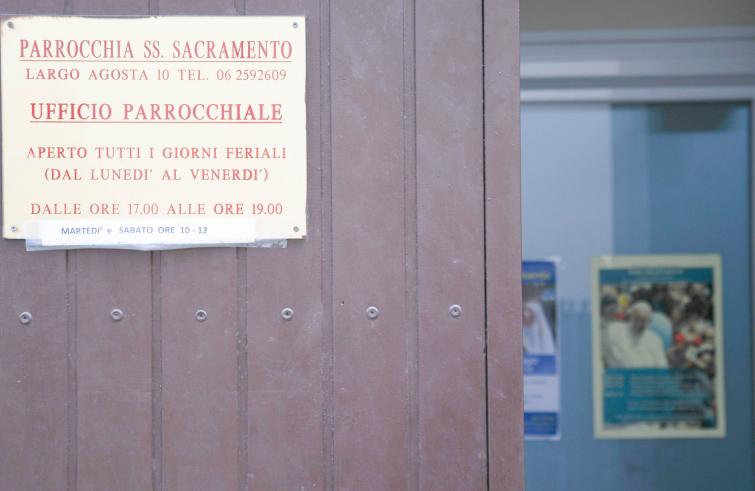
The objective of the Instruction is to testify that “in the Church there is room for all, and everyone can find their place” in the one and only family of God, respecting the vocation of each one, seeking to enhance every charism and to preserve the Church from potential drifts, such as the “clericalism” of the laity or the “secularization” of the clerics, or seeing permanent deacons as “half-priests, half-laymen.” The document entitled “The Pastoral Conversion of the Parish Community in the Service of the Evangelizing Mission of the Church”, released today by the Vatican’s Congregation for the Clergy, calls for cooperation between parishes and encourages the formation of pastoral units, based on the awareness that “ecclesial membership in our present age is less a question of birthplace, much less where someone grew up, as it is about being part of a community by adoption.”
“it is important not only to think about a new experience of Parish, but also about the ministry and mission of priests, together with the lay faithful”,
is the proposal of the newly-released document, which identifies in proximity the “key factor” of pastoral units, that are to be formed by the bishop, after consultation with the Presbyteral Council, taking into consideration “the homogeneity and customs of the inhabitants, together with the common traits of the area, in order to foster a close relationship between Parish Priests and other pastoral workers.” “Some causes are not sufficient” – is evidenced in the text – “such as, for example, the scarcity of diocesan clergy, the general financial situation of a Diocese, or other conditions within the community that are presumably reversible and of brief duration”, i.e. numerical consistency, lack of financial self-sufficiency, the urban planning of the territory. The document explicitly states that
“the office of Parish Priest may not be entrusted to a group composed of clerics and lay people”,
guarding against the use of appellations “which convey a sense of collegial government of the Parish.” If, owing to a shortage of priests, “it is not possible to appoint a full-time Parish Priest or a Parish Administrator, “for an extended period of time”, the diocesan Bishop “may entrust participation in the exercise of the pastoral care of the community to a deacon, to a consecrated religious or layperson, or even to a group of persons (e.g., Religious Institute, Association)”, coordinated and directed by a priest “with legitimate faculties, who will act as a Moderator of Pastoral Care, with the powers and functions of a Parish Priest, albeit without an office with its duties and rights.” The document clarifies that that “we are dealing here with an extraordinary form of entrusting pastoral care,” for this is “a temporary pastoral solution”, while “directing, coordinating, moderating or governing the Parish” are “the competencies of the priest alone.”
“Besides the occasional collaboration that every person of good will—even the unbaptised—may offer in the daily activities of the Parish, there exist also stable appointments, on the basis of which the faithful accept responsibility for service within the Parish community for a determined time”,
the Instruction reads: “For example, one thinks of catechists, of altar servers, of educators that work in groups and associations, of those who fulfil the works of charity and those who dedicate themselves to different types of counselling or to listening centres, and of those who visit the sick.” None of those with roles of responsibility in the Parish may be designated as “pastor”, “co-pastor”, “chaplain”, “moderator”, “coordinator”, “Parish manager”, or other similar terms, reserved by law to priests. Finally, the Bishop may officially entrust to deacons, consecrated men and women and lay faithful, under the direction and responsibility of the Parish Priest, other duties such as the celebration of the Liturgy of the Word on Sundays and Holy Days of Obligation, when “participation in the Eucharistic celebration becomes impossible because of the absence of a sacred minister or for another grave cause”; the administration of baptism and the celebration of funeral rites. The lay faithful may preach in a Church or oratory, if circumstances, necessity or a particular case calls for it, but they “may not in any case give the homily during the celebration of the Eucharist.” Moreover, where there is a lack of priests and deacons, the diocesan Bishop can delegate lay persons to assist at marriages, with the previous favourable vote of the Episcopal conference and after obtaining the permission of the Holy See. Practical directions set out in the document include emphasis on dedicating special care to the poor and
not to “commercialize” the sacramental life,
not to give the impression that “the celebration of the Sacraments, especially the Holy Eucharist, along with other ministerial activities, are subject to tariffs.”










